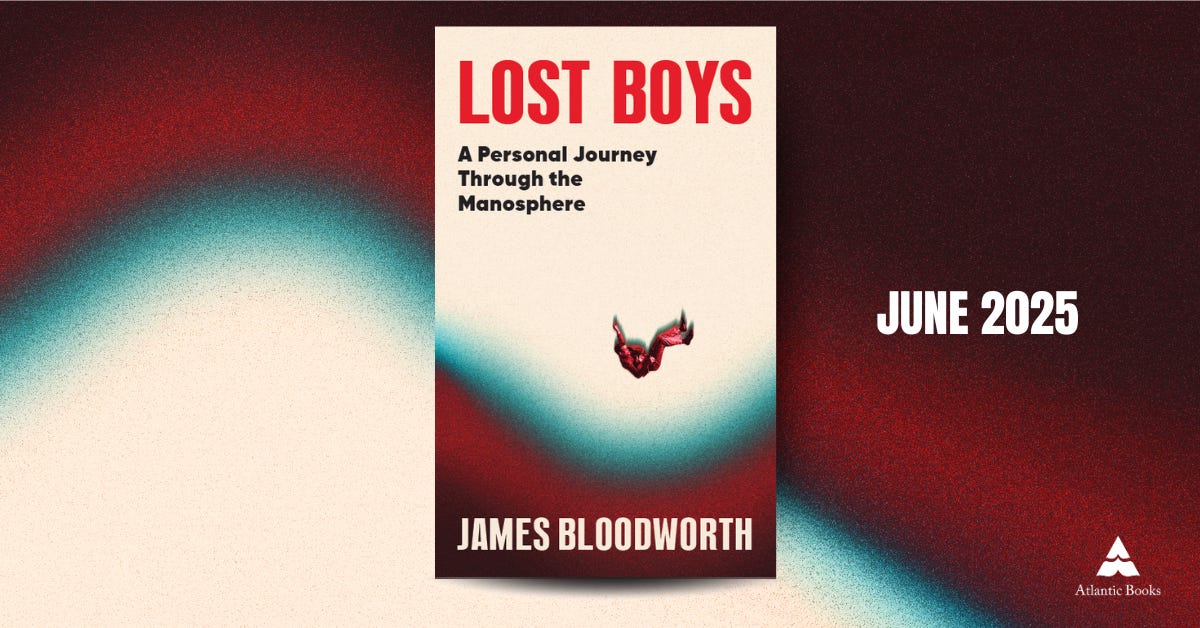Russell Brand and guru culture; 'role model' discourse; Brazil's US-backed dictatorship
A roundup of things I've been reading and watching 06/04/2025
Happy Sunday! This is a feature for subscribers in which I write a bit about the things I’ve been reading and/or watching.
But first some housekeeping.
I was recently on the Moral Maze on BBC Radio 4 to debate the so-called crisis of masculinity following the popularity of Netflix drama Adolescence. You can listen to my contribution here.
I’ll be speaking at the Greenwood Theatre, King’s College London, on Wednesday at 19:30. The event - Down the Rabbit Hole, an Adventure with Byline Times - will look at far-right and manosphere radicalisation. You can purchase a ticket to the event here.
Russell Brand has been in the news again this week for all the wrong reasons. Obviously I’m not going to comment on the specifics of a criminal case that is now going to court; however I am fascinated by the comedian’s trajectory over the past decade or so. I wrote one of my first Substack pieces about Brand, which riffed on an earlier piece I had written about him in 2013. Here is what I wrote in 2023:
The Covid-19 pandemic caused a form of epistomological breakdown in many people. They emerged from lockdown as if brushed by madness. I suspect this was partly a result of the extra time people were spending. Out of genuine conviction or acquisitive opportunism - perhaps a mixture of both - Brand used the time to reinvent himself as a right-wing conspiracy theorist. In doing so he discovered a large constituency of people who (to paraphrase Arendt) were ready at all times to believe the worst, no mater how absurd, and did not particularly object to being deceived because they held every statement to be a lie anyhow. From a converted pub in Henley-on-Thames, Brand pumped out a torrent of conspiracy-laden content on topics such as the Covid vaccine (‘how can we really continue to just “trust the science”?’), global warming and Russia’s war on Ukraine.
I ended the piece by bracketing Brand alongside other gurus, messiahs and therapists currently being thrust upon us by internet culture. Which I stand by.
This brings me to another topic that has been on my mind this week. On the back of the Netflix drama Adolescence, there has been a lot of talk about the need for male ‘role models’. I’m still not entirely sure what I think about this idea, because it seems to me that we already live in a culture dominated by celebrity and admiration for ‘heroic’ individuals. Indeed, in England at least, we even view team sports like football through the prism of individual greatness, which is perhaps why we’re no good. Prior to every tournament a single player is hyped up ad infinitum. Last year it was Jude Bellingham. Previously it was Wayne Rooney, David Beckham and Michael Owen. Even political propaganda is frequently personalised. We live in a culture that is forever elevating ‘brilliant’ individuals - before turning on them when they fail to live up to an impossible ideal.
Now, you might say that young people are turning to the wrong role models. I would be inclined to agree. But perhaps the problem is not so much the individuals as the idea of fandom itself. The word fan is after all a derivative of fanatic, a phenomenon ‘marked by excessive enthusiasm and often intense uncritical devotion’. I understand why it might be useful in certain contexts to model oneself after a person who is more experienced, but even this terrain is fraught with mythology: look at the ‘bro’ self-help space where everyone lies about working 18-hour days. Would it not be better to encourage young people to learn to think for themselves, rather than sending them off in search of an appropriate individual to uncritically devote themselves to?
I may of course be completely wrong about this; however I am sceptical of the idea that society should cultivate even more doltish admiration and hero worship. Moreover, imposing approved role models on young people will inevitably backfire. In a culture dominated by screens, role models are increasingly charismatic influencers. It seems even less likely that the culture will serve up good role models at a time of rising populism, characterised as it is by slavish devotion to the types of people that Theodore Adorno once described as ‘great little men’.
Things I’ve been watching/reading
The Brazilian Modernism exhibition is on at the Royal Academy for a couple more weeks and is well worth a visit. I also recommend (if you can find a way to watch it) the Oscar-winning Portuguese-language film I’m Still Here, Walter Salles’s moving story about the abduction and murder of a former Brazilian congressman by the US-backed military dictatorship that ruled the country from 1964 until 1985. The film is also a useful corrective to the now fashionable idea that prior to Donald Trump the US was a vehicle for democratic values and American ‘greatness’.
Dissent ran a good piece on the film by the Brazilian historian Frederico Freitas, whose uncle was ‘disappeared’ by the military dictatorship in 1971 at the age of thirty-one:
In the years that followed, my family pieced together what had happened to my uncle from fragments of information gathered from various sources. He was arrested by security agents in February 1971 in Ipanema, Rio de Janeiro. He was then taken to a newly established clandestine torture centre run by the army in the old imperial resort town of Petrópolis, nestled in the mountains near Rio de Janeiro. Once at the torture centre, dubbed the Casa da Morte (House of Death), Beto was tortured for two months before being executed. His body, disposed of in an unknown location, has never been found. All but one of the Casa da Morte’s prisoners, a woman named Inês Etienne Romeu, were executed.
The essay makes the important point that the far-right in Brazil is still a threat to democracy in the country:
When asked about the movie’s success, [former president Jair] Bolsonaro—who famously spat on a bust of Rubens Paiva [the murdered congressman in the film] while serving in the Brazilian Congress—responded that he would not waste his time commenting on a film that, in his view, wrongly glorifies the life of someone who was a ‘communist’ and a ‘bum.’ Bolsonaro has been indicted for orchestrating a failed coup, with support from the military, against newly reelected President Lula. As part of their efforts to build momentum for the coup, Bolsonaro’s inner circle launched a coordinated attack by right-wing militants on Congress and the presidential palace in Brasília on January 8, 2023, mimicking the assault on the U.S. Capitol on January 6, 2021.
Elon Musk is a hero among Bolsonaro supporters after using X to go after the Brazilian Supreme Court justice who is leading criminal investigations into the far-right former president.
I thought this essay by Jane Clare Jones was superb on the whataboutery that has consumed sections of the right since Adolescence came out. It is important to remember that it’s all obfuscation and dishonesty with these people.
I have, however, been incredibly struck over recent days by the outrage from the populist and MAGA right that the protagonist of the drama is a white working-class boy, and the fury that has been unleashed because the drama frustrates their particular narrative frame. As far as the populist right are concerned, the drama should focus on their preferred reality, which is black men’s knife crime and brown men’s violence against women. It should emphatically not be the drama that the creators set out to make, one that explores the radicalisation of young men by the online ‘red pill’ manosphere.
As with the presentation of the grooming gang scandal, the feminist critique of how certain forms of patriarchal masculinity lead to male sexual abuse and violence (and our institutions are terrible at dealing with it) is being deliberately sidelined in favour of an entirely racialised narrative, and as the responses to Adolescence reveal, any interrogation of male violence as a whole will be loudly repudiated, and presented as ‘demonising’ young men as ‘toxic.’ The characteristic of this discourse, therefore, is the weaponisation of male violence to serve racist ends, accompanied by the simultaneous refusal of any reckoning with the structures of patriarchal masculinity and the way young men are being radicalised into particularly abusive forms of masculine performance by online influencers like Andrew Tate. The fact that many of those pushing this narrative are so hostile to any account of male violence that doesn’t indict only certain groups of men, should pretty much tell you how much they really care about the impact of sexual violence on women.
My new book Lost Boys is available to pre-order.



